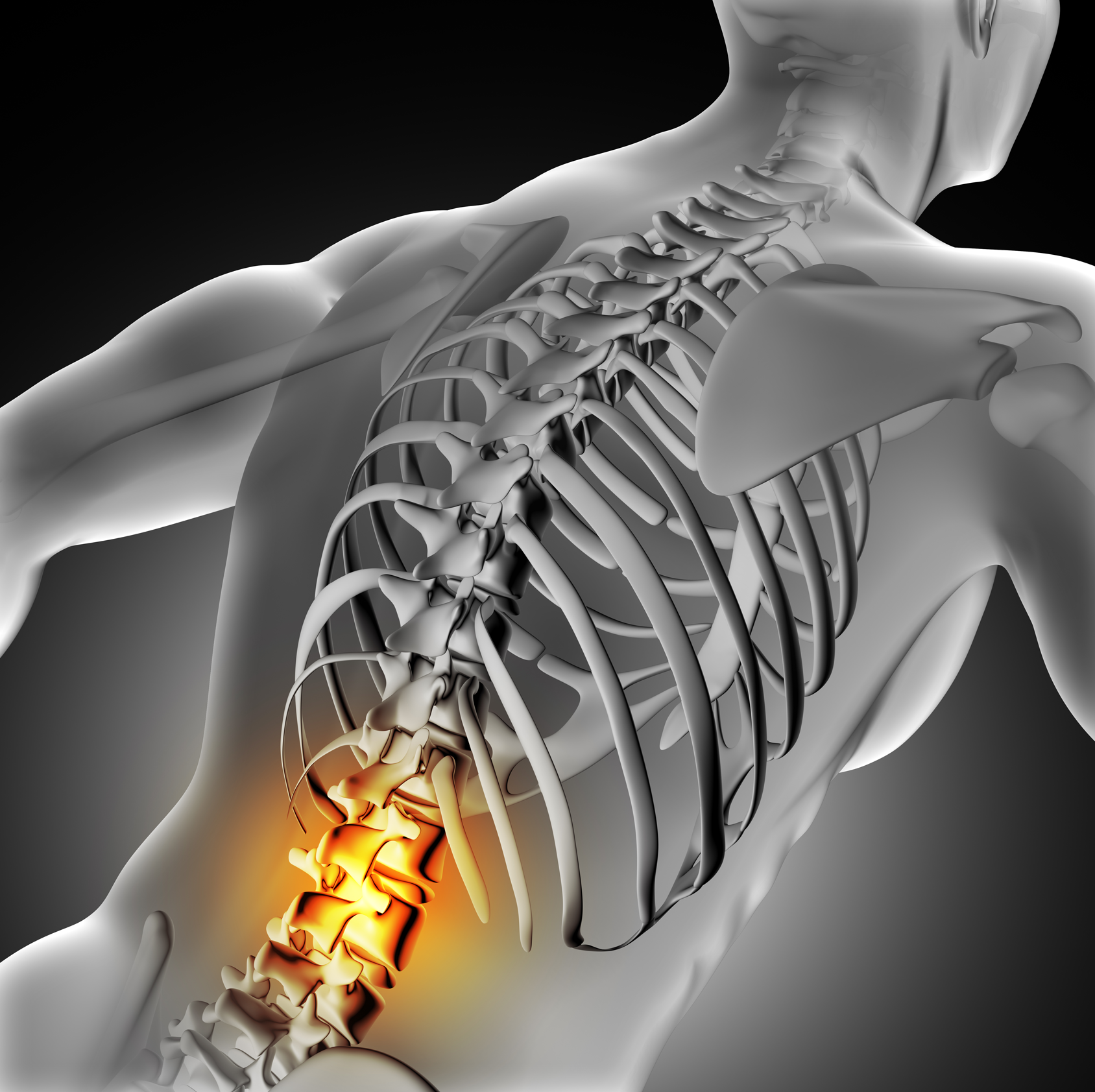Chiropractic Pain Relief
Located in Danbury, Connecticut, Danbury Chiropractic and Wellness is a practice committed to treating a wide range of musculoskeletal and nerve conditions by enhancing the body’s natural ability to heal itself. Dr DiLorenzo specializes in treating disc injuries etc.
Back Pain
Does Back Pain Go Away on Its Own?
Eighty percent of people suffer from back pain at some point in their lives. Back pain is the second most common reason for visits to the doctor’s office, outnumbered only by upper-respiratory infections. Most cases of back pain are mechanical or non-organic, i.e., not caused by serious conditions, such as inflammatory arthritis, infection, fracture, or cancer.
What Causes Back Pain?
The back is a complicated structure of bones, joints, ligaments, and muscles. You can sprain ligaments, strain muscles, rupture disks, and irritate joints, all of which can lead to back pain. While sports injuries or accidents can cause back pain, sometimes the simplest of movements-for example, picking up a pencil from the floor-can have painful results. In addition, arthritis, poor posture, obesity, and psychological stress can cause or complicate back pain. Back pain can also directly result from disease of the internal organs, such as kidney stones, kidney infections, blood clots, or bone loss.
Back injuries are a part of everyday life, and the spine is quite good at dealing with these often “pulled” muscles. These very minor injuries usually heal within 1 or 2 days. Some pain, however, continues. What makes some pain last longer is not entirely understood, but researchers suspect that the reasons may include stress, mood changes, and the fear of further injury that may prevent patients from being active. In addition, sometimes a painful injury or disease changes the way the pain signals are sent through the body, and, even after the problem has gone away or is inactive, the pain signals still reach the brain. It is as if the pain develops a memory that keeps being replayed.
Will Back Pain Go Away on Its Own?
Until recently, researchers believed that back pain will “heal” on its own. We have learned, however, that this is not true. A recent study showed that when back pain is not treated, it may go away temporarily but will most likely return. The study demonstrated that in more than 33% of the people who experience low-back pain, the pain lasts for more than 30 days. Only 9% of the people who had low-back pain for more than 30 days were pain free 5 years later.1
Another study looked at all of the available research on the natural history of low-back pain. The results showed that when it is ignored, back pain does not go away on its own.2 Those studies demonstrate that low-back pain continues to affect people for long periods after it first begins.
What Can I Do to Prevent Long-Term Back Pain?
If your back pain is not resolving quickly, visit your doctor of chiropractic. Your pain will often result from mechanical problems that your doctor of chiropractic can address. Many chiropractic patients with relatively long-lasting or recurring back pain feel improvement shortly after starting chiropractic treatment.3 The relief they feel after a month of treatment is often greater than after seeing a family physician.4
Chiropractic spinal manipulation is a safe and effective spine pain treatment. It reduces pain, decreases medication, rapidly advances physical therapy, and requires very few passive forms of treatment, such as bed rest.5
What Should I Tell My Doctor of Chiropractic?
Before any treatment session, tell your doctor of chiropractic if you experience any of the following:
• Pain goes down your leg below your knee.
• Your leg, foot, groin, or rectal area feels numb.
• You have fever, nausea, vomiting, stomach ache, weakness, or sweating.
• You lose bowel control.
• Your pain is caused by an injury.
• Your pain is so intense you can’t move around.
• Your pain doesn’t seem to be getting better quickly.
References
(1. Hestbaek L, Leboeuf-Yde C, Engberg M, Lauritzen T, Bruun NH, Manniche C. The course of low-back pain in a general population. Results from a 5-year prospective study. J Manipulative Physiol Ther 2003 May;26(4):213-9.)
(2. Hestbaek L, Leboeuf-Yde C, Manniche C. Low-back pain: what is the long-term course? A review of studies of general patient populations. Eur Spine J 2003 Apr;12(2):149-65.)
(3. Stig LC, Nilsson O, Leboeuf-Yde C. Recovery pattern of patients treated with chiropractic spinal manipulative therapy for long-lasting or recurrent low back pain. J Manipulative Physiol Ther 2001 May;24(4):288-91.)
(4. Nyiendo J, Haas M, Goodwin P. Patient characteristics, practice activities, and one-month outcomes for chronic, recurrent low-back pain treated by chiropractors and family medicine physicians: a practice-based feasibility study. J Manipulative Physiol Ther 2000 May;23(4):239-45.)
(5. Time to recognize value of chiropractic care? Science and patient satisfaction surveys cite usefulness of spinal manipulation. Orthopedics Today February 2003;23(2):14-15.)
Lawrence H. Wyatt, DC, DACBR, Professor, Division of Clinical Science, Texas Chiropractic College,
Writer Nataliya Schetchikova, PhD, Editor
Headaches & Migraine
Have a Splitting Headache?
Chiropractic Care Can Help
by The American Chiropractic Association
If you have a headache, you’re not alone. Nine out of ten Americans suffer from headaches. Some are occasional, some frequent, some are dull and throbbing, and some cause debilitating pain and nausea.
What do you do when you suffer from a pounding headache? Do you grit your teeth and carry on? Lie down? Pop a pill and hope the pain goes away? There is a better alternative.
New research shows that spinal manipulation – the primary form of care provided by doctors of chiropractic – may be an effective treatment option for tension headaches and headaches that originate in the neck.
A report released in 2001 by researchers at the Duke University Evidence-Based Practice Center in Durham, NC, found that spinal manipulation resulted in almost immediate improvement for those headaches that originate in the neck, and had significantly fewer side effects and longer-lasting relief of tension-type headache than a commonly prescribed medication.
Also, a 1995 study in the Journal of Manipulative and Physiological Therapeutics found that spinal manipulative therapy is an effective treatment for tension headaches and that those who ceased chiropractic treatment after four weeks experienced a sustained therapeutic benefit in contrast with those patients who received a commonly prescribed medication.
Headache Triggers
But to get to the bottom of the problem, you first need to find out what is causing your pain. Headaches have many causes, or “triggers.” These may include foods, environmental stimuli (noises, lights, stress, etc.) and/or behaviors (insomnia, excessive exercise, blood sugar changes, etc.). About 5 percent of all headaches are warning signals caused by physical problems.
Ninety-five percent of headaches are primary headaches, such as tension, migraine, or cluster headaches. These types of headaches are not caused by disease. The headache itself is the primary concern.
What Can a Doctor of Chiropractic Do?
• Perform spinal manipulation or chiropractic adjustments to improve spinal function and alleviate the stress on your system.
• Provide nutritional advice, recommending a change in diet and perhaps the addition of B complex vitamins.
• Offer advice on posture, ergonomics (work postures), exercises and relaxation techniques. This advice should help to relieve the recurring joint irritation and tension in the muscles of the neck and upper back.
Neck Pain
Our neck, also called the cervical spine, begins at the base of the skull and contains seven small vertebrae. Incredibly, the cervical spine supports the full weight of your head, which is on average about 12 pounds. While the cervical spine can move your head in nearly every direction, this flexibility makes the neck very susceptible to pain and injury.
The neck’s susceptibility to injury is due in part to biomechanics. Activities and events that affect cervical biomechanics include extended sitting, repetitive movement, accidents, falls and blows to the body or head, normal aging, and everyday wear and tear. Neck pain can be very bothersome, and it can have a variety of causes.
Here are some of the most typical causes of neck pain:
• Injury and Accidents: A sudden forced movement of the head or neck in any direction and the resulting “rebound” in the opposite direction is known as whiplash. The sudden “whipping” motion injures the surrounding and supporting tissues of the neck and head. Muscles react by tightening and contracting, creating muscle fatigue, which can result in pain and stiffness. Severe whiplash can also be associated with injury to the intervertebral joints, discs, ligaments, muscles, and nerve roots. Car accidents are the most common cause of whiplash.
• Growing Older: Degenerative disorders such as osteoarthritis, spinal stenosis, and degenerative disc disease directly affect the spine.
• Osteoarthritis, a common joint disorder, causes progressive deterioration of cartilage. The body reacts by forming bone spurs that affect joint motion.
• Spinal stenosis causes the small nerve passageways in the vertebrae to narrow, compressing and trapping nerve roots. Stenosis may cause neck, shoulder, and arm pain, as well as numbness, when these nerves are unable to function normally.
• Degenerative disc disease can cause reduction in the elasticity and height of intervertebral discs. Over time, a disc may bulge or herniate, causing tingling, numbness, and pain that runs into the arm.
• Daily Life: Poor posture, obesity, and weak abdominal muscles often disrupt spinal balance, causing the neck to bend forward to compensate. Stress and emotional tension can cause muscles to tighten and contract, resulting in pain and stiffness. Postural stress can contribute to chronic neck pain with symptoms extending into the upper back and the arms.
Chiropractic Care of Neck Pain
Your doctor of chiropractic will do physical and neurological exams. In the physical exam, your doctor will observe your posture, range of motion, and physical condition, noting movement that causes pain. Your doctor will feel your spine, note its curvature and alignment, and feel for muscle spasm. A check of your shoulder area is also in order. During the neurological exam, your doctor will test your reflexes, muscle strength, other nerve changes, and pain spread.
In some instances, your chiropractor might order tests to help diagnose your condition (x-ray, CT scan, MRI, EMG). Doctors of chiropractic are conservative care doctors; their scope of practice does not include the use of drugs or surgery. If your chiropractor diagnoses a condition outside of this conservative scope, such as a neck fracture or an indication of an organic disease, he or she will refer you to the appropriate medical physician or specialist. He or she may also ask for permission to inform your family physician of the care you are receiving to ensure that your chiropractic care and medical care are properly coordinated.
Neck Adjustments
A neck adjustment (also known as cervical manipulation) is a precise procedure applied to the joints of the neck, usually by hand. A neck adjustment works to improve the mobility of the spine and to restore range of motion; it can also increase movement of the adjoining muscles. Patients typically notice an improved ability to turn and tilt the head, and a reduction of pain, soreness, and stiffness.
Of course, your chiropractor will develop a program of care that may combine more than one type of treatment, depending on your personal needs. In addition to manipulation, the treatment plan may include mobilization, massage or rehabilitative exercises, or something else.
What Research Shows
One of the most recent reviews of scientific literature found evidence that patients with chronic neck pain enrolled in clinical trials reported significant improvement following chiropractic spinal manipulation. As part of the literature review, published in the March/April 2007 issue of the Journal of Manipulative and Physiological Therapeutics, the researchers reviewed nine previously published trials and found “high-quality evidence” that patients with chronic neck pain showed significant pain-level improvements following spinal manipulation. No trial group was reported as having remained unchanged, and all groups showed positive changes up to 12 weeks post-treatment.
Common Problems
True health is the condition which exists when all of the organs and parts of the body work together in coordination and harmony. The nervous system (brain and spinal cord) is the master controller and coordinator of all body functions.
By keeping the nervous system free from any interference due to misplaced spinal bones, simply allows the body’s natural healing ability to function at its maximum… thus keeping resistance high and maintaining health naturally.
-
Radiculopathy (Leg Pain)
-
Thoracic disc herniation
-
Degenerative disc disease
-
Facet syndrome
-
Headache
-
Compression defects
-
Loss of spine lordosis
-
Loss of range of spinal motion
-
Whiplash-type injuries
-
Persistent pain after back surgery (Post Surgical Continued Pain – Failed Back Surgical Syndrome – FBSS)
-
Scoliosis (not to cure, but to maintain mobility of the curve)
-
Osteoporosis
-
Transitional segment / Bertolotti’s Syndrome
-
Subluxation
-
Postural faults
-
Mechanical back pain
-
Osteoarthritis of spine
-
Patients unable to tolerate vigorous adjustment
-
Coccydynia
-
Mechanical back pain (such as that accompanying ankylosing spondylitis, collagen vascularizing diseases, pelvice pain, pregnancy)
- Fibromyalgia
- Neurological Diseases (such as multiple sclerosis, cerebral palsy, stroke)
- DISH – Diffuse Idiopathic Skeletal Hyperostosis
- Klippel Feil Syndrome
- Knee pain
Whiplash
Personal Injury / Auto Accidents

If you have been involved in a motor vehicle accident (MVA) make an appointment with the doctors at Danbury Chiropractic and Wellness for a thorough examination. You do not want to ignore your pain associated with trauma. A study by Freeman et al. (1) found that 45% of the entire American population that had chronic neck pain attributed the cause of their pain to a previous automobile accident. Having pain is a symptom that something needs to be taken care of in your body. Ignoring your pain can lead to further problems in the future, including chronic pain.
Individuals choose chiropractic care for treatment of injuries sustained in MVA’s because chiropractic care is exceptional in the treatment of soft tissue injuries, especially of the spine. Since the most common injuries associated with MVA’s are sprains and strains of the spinal muscles and ligaments, it’s only natural that chiropractic be the treatment of choice. Many studies have also found individuals injured in MVA’s prefer chiropractic care for the treatment of their injuries. One such study evaluated 190 whiplash injury victims and found those who received chiropractic care reported treatment satisfaction of 100%. 1. Balla JI, Iansek R. Headaches arising from disorders of the cervical spine. In: Hopkins A, ed. Headache: Problems in Diagnosis and Management. London: WB Saunders; 1988.
The Doctors at Danbury Chiropractic and Wellness Will Determine…
- the extent of the injury or injuries
- if referral to another medical specialist is required (i.e. orthopedist, pain specialist, neurosurgeon, etc.)
- if special tests are required (i.e. MRI, CT Scan, etc.)
- if you need to take “injury time off” from work (and provide you with a note to present to your employer)
Common conditions associated with a motor vehicle accident:
- Whiplash
- Headaches
- Back pain
- Herniated discs
- Extremity pain
- Numbness and tingling into arms and legs
Work Injury
• Work Injury
• Work-related injuries and chiropractic treatment
• On average, one in three workplace injuries involves musculoskeletal injuries, which affect ligaments, muscles, tendons and even bones. These injuries can occur due to trauma or wear and tear from daily routines. Many people who experience these types of workplace injuries are potentially suitable candidates for chiropractic care.
• Benefits of chiropractic care for workers’ compensation injuries
• Chiropractic care is a non-invasive form of treatment that helps promote healing.
• Doctors of Chiropractic are trained to perform a variety of different techniques including manual manipulation of the spine (i.e., adjustments) as well as massage and electrical stimulation of tissue. Chiropractic care helps reduce tissue inflammation caused by injury, and it also helps reduce pain caused by many workplace injuries.
• Chiropractic care is an attractive alternative to the use of narcotic painkillers, which can lead to dependency and abuse. Doctors of chiropractic can suggest therapeutic exercises that may speed the healing process in some cases and also prevent future workplace injuries such as overexertion, by teaching proper lifting techniques.
Workers Compensation and Chiropractic: A Solution for Lowering Healthcare Costs for the Acute and Chronic Care Patient:
What our clients say
Where to find us

Why not call for an appointment today?
(203) 792-9582
Interactive 3D Spine

Located in Danbury, Connecticut, Danbury Chiropractic and Wellness is a practice committed to treating a wide range of musculoskeletal and nerve conditions by enhancing the body’s natural ability to heal itself.
OFFICE HOURS
Mon ~ 8:00am - 1:00pm, 3:00pm – 7:00pm Tues ~ 9:00am - 12:00pm, 3:00pm – 7:00pm Wed ~ 8:00am - 1:00pm, 3:00pm – 7:00pm Thurs ~ Closed
Fri ~ 8:00am - 1:00pm, 3:00pm – 7:00pm
Sat ~ 8:00am - 12:00pm
Sun ~ Closed









